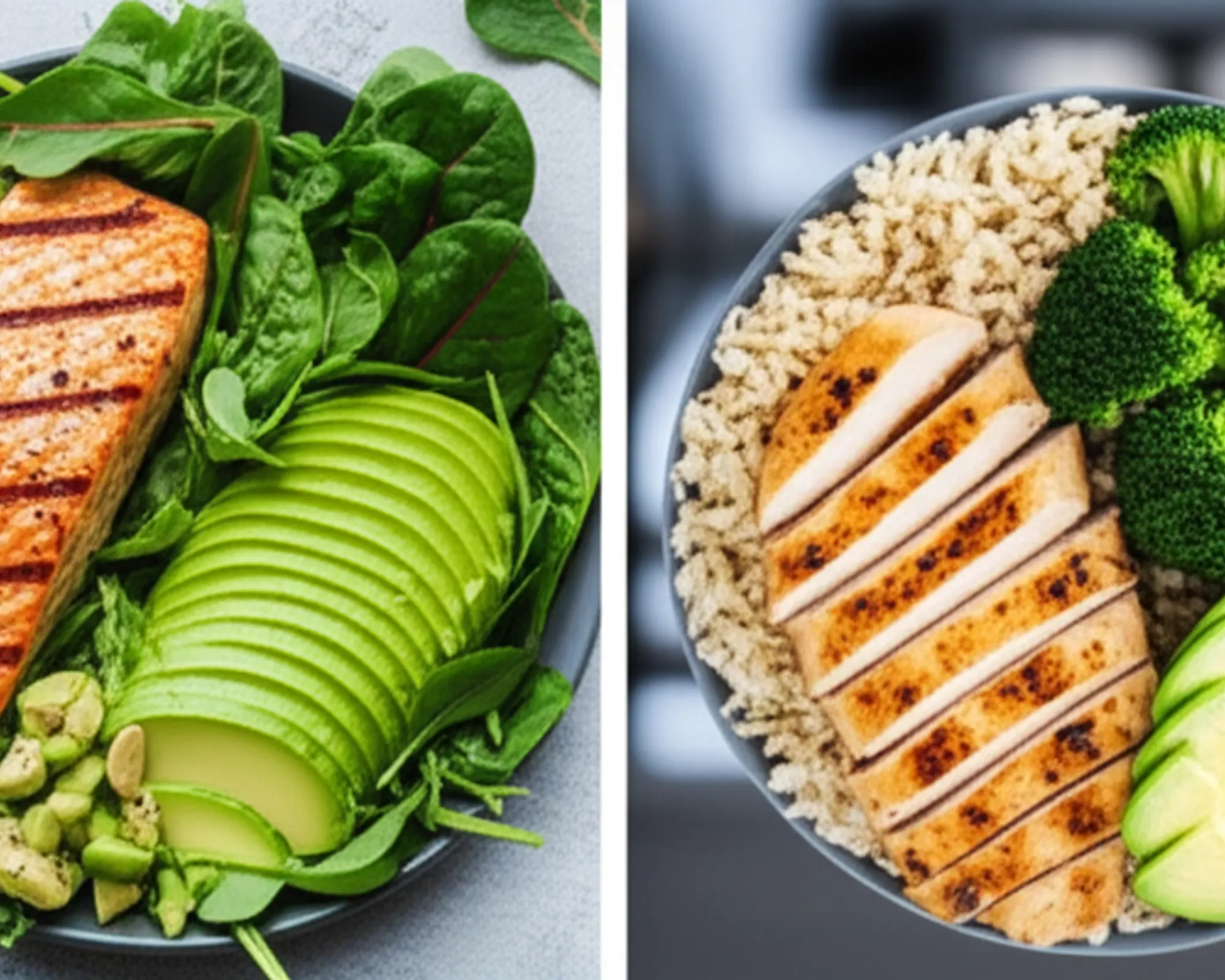Carbs and Muscle Growth: Why You Shouldn’t Skip Them

In the world of fitness and muscle building, carbohydrates often get a bad rap. Low-carb diets are popularized for weight loss, leading many aspiring lifters to mistakenly believe that cutting out carbs is the key to a lean, muscular physique. However, for anyone serious about optimizing muscle growth, performance, and recovery, this couldn't be further from the truth. Carbs are not your enemy; they are, in fact, an indispensable ally in your quest for bigger, stronger muscles.
The Powerhouse Fuel: Glycogen and Performance
At their core, carbohydrates are your body's primary and most efficient source of energy. When you consume carbs, your body breaks them down into glucose, which is then used immediately for energy or stored as glycogen in your muscles and liver. Think of glycogen as your personal fuel tank for intense physical activity. During a challenging weightlifting session, your muscles rely heavily on these glycogen stores.
Without adequate glycogen, your performance will inevitably suffer. You’ll experience reduced strength, less endurance, and a quicker onset of fatigue. This means fewer reps, lighter weights, and ultimately, a less effective workout – all of which hinder muscle growth. By keeping your glycogen stores topped up, you ensure that your muscles have the fuel they need to push harder, lift heavier, and sustain intense effort, which are crucial stimuli for muscle hypertrophy.
Insulin: The Anabolic Hormone You Can't Ignore
One of the most powerful anabolic (muscle-building) hormones in your body is insulin, and guess what stimulates its release? Carbohydrates! When you eat carbs, your blood glucose levels rise, prompting your pancreas to release insulin. While often associated with fat storage, insulin plays a critical, positive role in muscle growth and recovery.
Insulin acts like a key, unlocking your muscle cells to allow glucose and amino acids (the building blocks of protein) to enter. This process is vital for muscle protein synthesis – the repair and rebuilding of muscle tissue after a workout. Insulin also helps to shuttle other essential nutrients into your cells, promoting an optimal anabolic environment. Furthermore, insulin has anti-catabolic properties, meaning it helps to prevent muscle protein breakdown. By reducing the rate at which muscle tissue is broken down, insulin helps to tip the scales in favor of muscle growth.
Preventing Muscle Breakdown: Carb-Sparing Effect
When your body lacks sufficient carbohydrates, it looks for alternative fuel sources to meet its energy demands. Unfortunately, one of the easiest sources it can tap into is protein, including the protein stored in your muscles. This process, known as gluconeogenesis, involves converting amino acids from muscle tissue into glucose for energy.
This is where carbs play another crucial role: their "protein-sparing effect." By providing a readily available energy source, carbohydrates prevent your body from breaking down precious muscle protein for fuel. This means that the protein you consume can be primarily used for its intended purpose: repairing and building muscle tissue, rather than being diverted for energy. Skipping carbs can therefore directly undermine your efforts to gain muscle mass.
Accelerated Recovery: Replenishing and Rebuilding
Muscle growth doesn't happen during your workout; it happens during the recovery period that follows. Post-workout nutrition is critical, and carbohydrates are a cornerstone of effective recovery. After an intense training session, your muscle glycogen stores are significantly depleted. Consuming carbohydrates post-workout is essential for rapidly replenishing these stores, preparing your muscles for the next session.
Combined with protein, carbs post-workout create an optimal environment for recovery. The insulin spike facilitates nutrient delivery, speeding up the repair process and reducing muscle soreness. This faster recovery means you can train effectively more often, leading to quicker progress and more significant muscle gains over time.
The Right Carbs at the Right Time
Not all carbohydrates are created equal, and timing matters. Generally, carbohydrates can be broadly categorized into simple and complex:
- Complex Carbohydrates: Found in foods like whole grains (oats, brown rice, quinoa), sweet potatoes, and legumes. These are digested slowly, providing a sustained release of energy and helping to keep blood sugar stable. They are ideal for pre-workout meals, providing long-lasting fuel, and for general consumption throughout the day.
- Simple Carbohydrates: Found in fruits, honey, and sometimes in refined grains or sugary snacks. These are digested quickly, leading to a rapid rise in blood sugar and a sharp insulin spike. While often avoided, simple carbs have a strategic place: immediately post-workout. Their quick absorption helps to rapidly replenish glycogen stores and trigger that beneficial insulin response for recovery.
Practical Tips for Incorporating Carbs
So, how can you effectively incorporate carbohydrates into your muscle-building diet without fear?
- Prioritize Complex Carbs: Make whole grains, starchy vegetables, and legumes the foundation of your carb intake for sustained energy.
- Strategic Simple Carbs: Use simple carbs (like a banana or a small amount of fruit juice) immediately after your workout to kickstart recovery.
- Match Intake to Activity: Your carbohydrate needs will vary based on your activity level. On intense training days, you'll need more carbs than on rest days.
- Listen to Your Body: Pay attention to your energy levels, recovery, and body composition. Adjust your carb intake as needed.
- Don't Fear Them: The notion that carbs automatically make you fat is largely a myth. Excess calories, regardless of macronutrient source, lead to fat gain. When consumed in appropriate amounts for your activity level, carbs are crucial for performance and muscle growth.
Conclusion
Carbohydrates are far more than just "empty calories" or a weight-loss foe. For anyone dedicated to building muscle, they are a fundamental pillar of a successful nutrition strategy. From fueling your workouts and preventing muscle breakdown to driving anabolic processes and accelerating recovery, carbs play an indispensable role. Embrace them intelligently, time them wisely, and watch your strength, performance, and muscle gains reach new heights. Don't skip your carbs; leverage them for superior muscle growth.


